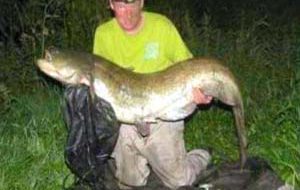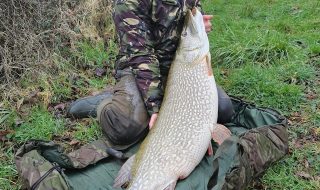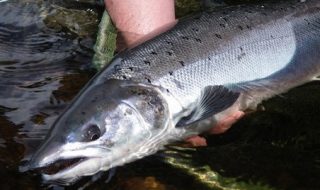Fish Legal is considering legal action against Perth and Kinross Council after its Community Safety Committee rejected a proposal to introduce a bye-law restricting commercial rafting on the Upper Tay.
Fish Legal made the application on behalf the Tay District Salmon Fishery Board which has a legal duty to protect and enhance salmon fisheries on the River Tay. The Upper Tay has been swamped by rafters since the introduction of the Land Reform (Scotland) Act in 2003, making fishing virtually impossible. Fishermen, beleaguered by an incessant tide of rafts, no longer fish the waters. Catches have collapsed and as a result the capital and rental values of the fisheries have plummeted.
The concerned fishery owners sought the help of the Perth & Kinross Open Access Forum in 2005 to try to negotiate some ‘raft-free’ time on the river. After five years of fruitless negotiation with the rafters, fishery owners asked the Access Forum to make their own recommendations. In their report the Access Forum noted that “Fishing is significantly and detrimentally affected by the presence and passage of the large numbers of commercial rafts” and that “responsible sharing was not practicable”. The Forum then went on to endorse the fishery owners’ request for three raft-free days per week to allow the fishery owners to rebuild their businesses.
Fish Legal Solicitor Robert Younger commented: “The fishery owners’ offer of a 50/50 split was a generous one because public access rights do not give the rafters any legal right to disrupt somebody else’s quiet enjoyment of their valuable property rights. I believe that most people in the fishing community are happy to share the water with recreational canoeists and kayakers but unending flotillas of commercial rafts are an entirely different matter”.
However, the 50/50 time-split offer, even with the full endorsement of the Access Forum, was rejected by the rafters. With its waters becoming unfishable, the Tay District Salmon Fishery Board instructed Fish Legal to ask Perth and Kinross Council for a bye-law to regulate access by commercial rafters. Fish Legal wrote to the Council in April 2010 asking for its views on how a bye-law could be created. After repeated requests to submit evidence were ignored by the Council, Fish Legal was surprised to see an article in the local press, entitled “Fishermen to be refused bye-law to limit rafters” the day before a hearing to consider the application.
Fish Legal has not yet received formal notification of the decision from the Council but, according to local reports the application was rejected because “the Council would have to be convinced that the nuisance merits criminal sanctions” and “we have received no evidence to demonstrate that rafting companies are acting irresponsibly or that commercial fishing interests have suffered economically as a result”.
Mr Younger commented: “It is hardly surprising that the Council has not received any evidence in support of a bye-law, for the simple reason that they have not asked for any, despite my repeated requests to be allowed to do exactly this. This decision was reached without proper consultation. The first we knew of it was when it appeared in the local press. It would seem that the Perth and Kinross Council has an unprofessional approach to such issues and a general prejudice against fishery interests and are not prepared to give us a fair hearing. This is a worrying precedent for everyone who loves fishing in Scotland”.
Michael Campbell, Chairman of the Upper Tay Riparian Owners’ Association (UTROA), said: “It is very disappointing that, although the Local Access Forum stated so categorically that angling and rafting were simply incompatible and that they must operate independently and equally, these points were so conveniently ignored by Perth and Kinross Council”.
David Summers, Director of the Tay District Salmon Fishery Board, added: “There is absolutely no doubt that rafting activity has done very substantial damage to salmon fisheries on the Tay. The Council has a duty to be even-handed and impartial in helping to resolve this impasse. It is regrettable that it appears to be biased in favour of the rafters”.
Dr Alan Wells, Policy and Planning Director for the Association of Salmon Fishery Boards, commented: “It is unsatisfactory that there appears to have been little transparency in the consideration process for the bye-law sought by the Tay Board. We are concerned that the Tay Board only learnt about the outcome of their proposal in the local press. Our concern is underlined by the fact that the Board was not given the opportunity to quantify the negative impact the rafting activities are having on the Upper Tay fishings. The fishery owners were prepared to reach a compromise agreement with the rafting companies, and despite the support of the wider Access Forum, Perth and Kinross Council chose to disregard that”.





